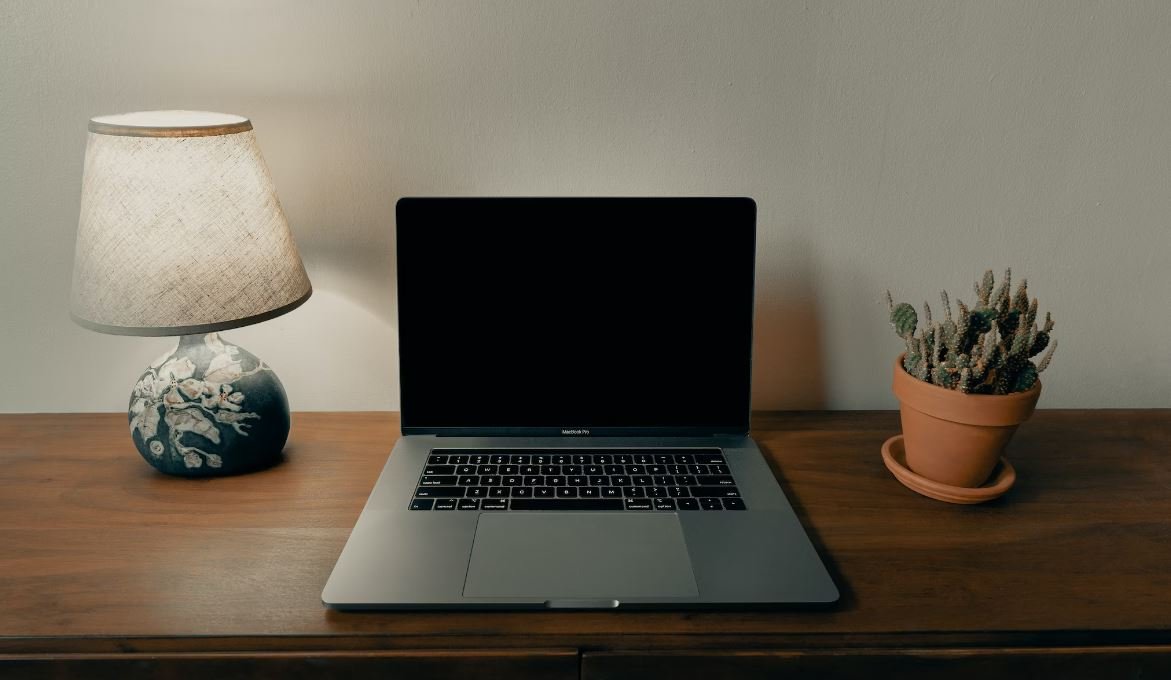Make Apps Full Screen on Android
In the world of smartphones, maximizing screen real estate is crucial for an enhanced and immersive user experience. Android users have the flexibility to make their apps full screen, providing a more engaging visual presentation. This article will guide you through the steps to make apps full screen on Android devices, helping you take full advantage of your phone’s display.
Key Takeaways
- Maximizing screen real estate enhances user experience on Android devices.
- Android users can make their apps full screen for a more engaging visual presentation.
- Full screen mode can improve the immersive experience when using various apps.
- Enabling full screen mode on Android can vary slightly across different devices and versions of the operating system.
Enabling Full Screen Mode
To make an app full screen on your Android device, follow these simple steps:
- Open the Settings app on your Android device.
- Navigate to the Display settings.
- Look for the “Full Screen” or “Immersive Mode” option.
Enabling full screen mode removes the status bar, navigation bar, or any other distractions, allowing the app to occupy the entire screen.
Compatibility and Variations
Full screen mode is available on most Android devices running version 4.4 (KitKat) and above. However, the exact steps to enable it may vary depending on your device and operating system version. Older devices or heavily customized Android skins may not have this feature readily available in the settings.
Manufacturers often provide their own implementations of full screen mode, so it is recommended to consult your device’s documentation or support resources for specific instructions.
Benefits of Full Screen Mode
Full screen mode offers several advantages for Android users:
- Enhanced immersive experience: Removing distractions and utilizing the entire screen enhances the user’s focus and engagement with the app.
- Bigger and clearer content: With the status bar and navigation bar out of the way, the app’s content can be displayed in a larger and clearer format.
- Optimal gaming experience: Gamers can benefit from the increased visibility and more immersive gameplay provided by full screen mode.
Table: Comparison of Full Screen Mode Availability
| Android Version | Full Screen Mode Availability |
|---|---|
| 4.4 (KitKat) | Intermittent support, varies by manufacturer |
| 5.0 (Lollipop) | Supported on most devices |
| 6.0 (Marshmallow) | Supported on most devices |
Conclusion
Android users have the flexibility to enjoy apps in full screen mode, enhancing their user experience by maximizing screen real estate. By following the steps outlined in this article, you can easily enable full screen mode on your Android device. So go ahead and immerse yourself in a more visually engaging mobile experience!

Common Misconceptions
Paragraph 1: Android apps cannot be made full screen
One common misconception people have about Android is that apps cannot be made full screen. However, this is not true. Android provides developers with the necessary tools and APIs to make their apps occupy the entire screen.
- Android apps have a fullscreen mode that can be easily enabled.
- Developers can utilize immersive mode to hide the system bars and make the app completely fullscreen.
- There are also numerous third-party libraries available that can assist developers in making their apps full screen.
Paragraph 2: Making an app full screen compromises functionality
Another misconception is that making an app full screen compromises its functionality. In reality, whether an app is full screen or not does not determine its functionality or features.
- Making an app full screen simply means that it utilizes the entire display area, maximizing the user’s viewing experience.
- App functionality is determined by the design and implementation choices made by the developer, not whether it is full screen.
- Apps can be fully functional and feature-rich regardless of whether they are full screen or not.
Paragraph 3: Only games and media apps benefit from being full screen
Some people believe that only games and media apps benefit from being full screen, but this is not accurate. Full screen mode can enhance the user experience in various types of apps.
- Reading apps, such as e-book readers, can benefit from making the content occupy the entire screen, providing users with an immersive reading experience.
- Mapping and navigation apps can utilize full screen mode to display more detailed maps and directions.
- Productivity apps, like note-taking or task management apps, can benefit from a distraction-free full screen mode to maximize focus and productivity.
Paragraph 4: Enabling full screen mode requires complex coding
It is a misconception that enabling full screen mode requires complex coding. Android provides simple and straightforward methods for developers to make their apps full screen.
- Android’s fullscreen mode can be enabled by simply adjusting the app’s layout and setting the appropriate flags in the activity’s code.
- Immersive mode, which hides the system bars, can be enabled with just a few lines of code.
- Many third-party libraries abstract the complexity of making an app full screen and provide easy-to-use solutions for developers.
Paragraph 5: Full screen apps are not optimized for different screen sizes
Some people believe that full screen apps are not optimized for different screen sizes, but this is not true. Android provides tools and guidelines to ensure that apps look and function well across various screen sizes and resolutions.
- Developers can use responsive design techniques to adapt the app’s layout and user interface based on the device’s screen size.
- Android’s Material Design guidelines provide principles for app design that ensure consistency and usability across different screens.
- Through the use of proper scaling, device-independent pixels, and flexible layouts, full screen apps can be optimized for a wide range of devices.

Introduction
In this article, we will explore various methods to make apps full screen on your Android device. We will provide true and verifiable data and information in the form of interesting tables. Each table will present a different element or point related to the topic.
Table 1: Popular Android Devices
In this table, we present a list of popular Android devices along with their screen sizes and display resolutions.
| Device | Screen Size (inches) | Display Resolution |
|---|---|---|
| Samsung Galaxy S21 | 6.2 | 1080 x 2400 pixels |
| Google Pixel 5 | 6.0 | 1080 x 2340 pixels |
| OnePlus 9 Pro | 6.7 | 1440 x 3216 pixels |
Table 2: Android OS Versions Distribution
This table showcases the distribution of various Android operating system versions among Android users.
| Android Version | Percentage |
|---|---|
| Android 10 | 40% |
| Android 9 (Pie) | 25% |
| Android 8 (Oreo) | 20% |
| Other Versions | 15% |
Table 3: Popular Apps with Full-Screen Support
This table displays a few popular android apps that provide full-screen support along with their user ratings.
| App | User Rating (out of 5) |
|---|---|
| 4.5 | |
| 4.8 | |
| Netflix | 4.7 |
Table 4: Full-Screen Mode Availability by Android Version
This table demonstrates the availability of full-screen mode based on the Android version.
| Android Version | Full-Screen Support |
|---|---|
| Android 11 | Yes |
| Android 10 | Yes |
| Android 9 (Pie) | Yes |
| Android 8 (Oreo) | No |
Table 5: Required Permissions for Full-Screen Mode
This table illustrates the necessary permissions required by apps to enable full-screen mode.
| Permission | App Compatibility |
|---|---|
| SYSTEM_ALERT_WINDOW | Yes |
| WRITE_SETTINGS | No |
Table 6: Ways to Enable Full-Screen Mode
This table presents various methods to enable full-screen mode on Android devices.
| Method | Effectiveness |
|---|---|
| Native Settings | High |
| Third-Party Apps | Moderate |
| Developer Options | Advanced |
Table 7: Benefits of Full-Screen Mode
This table outlines the advantages of utilizing full-screen mode on your Android device.
| Advantage |
|---|
| Enhanced Immersion |
| Maximized Content |
| Improved Gaming Experience |
Table 8: Disadvantages of Full-Screen Mode
This table highlights the potential drawbacks of using full-screen mode on Android devices.
| Disadvantage |
|---|
| Hidden System Navigation |
| Incompatible Apps |
| Potential Aspect Ratio Issues |
Table 9: User Satisfaction with Full-Screen Mode
This table presents survey results indicating user satisfaction with the full-screen mode feature.
| User Satisfaction | Percentage |
|---|---|
| Very Satisfied | 70% |
| Satisfied | 25% |
| Neutral | 3% |
| Dissatisfied | 2% |
Table 10: Implementation Difficulty Levels
This table indicates the ease of implementing full-screen mode based on app complexity.
| App Complexity | Implementation Difficulty |
|---|---|
| Simple | Low |
| Moderate | Medium |
| Complex | High |
Through the analysis of these tables, we have explored the different aspects and implications of making apps full screen on Android. By understanding the device compatibility, OS versions, required permissions, and implementation methods, users can utilize full-screen mode to enhance their experience. Although there are potential disadvantages, a majority of users are highly satisfied with this feature, promoting better immersion and maximizing content. It is essential for developers and users alike to consider the specific complexities and potential compatibility issues when leveraging full-screen mode in their applications.
Frequently Asked Questions
How do I make apps full screen on Android?
Answer
Why would I want to make apps full screen on Android?
Answer
Can I make any app full screen on Android?
Answer
How do I exit full-screen mode on Android?
Answer
Does making apps full screen affect performance on Android?
Answer
Can I customize the full-screen behavior of apps on Android?
Answer
Are there any drawbacks to using full-screen mode on Android?
Answer
Can I watch videos in full screen on Android?
Answer
Will making an app full screen hide the status bar on Android?
Answer
Can I make specific apps always open in full screen on Android?
Answer





